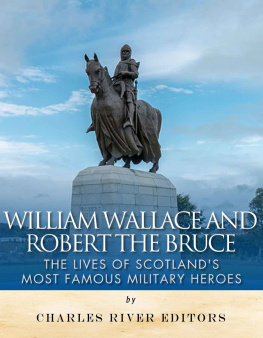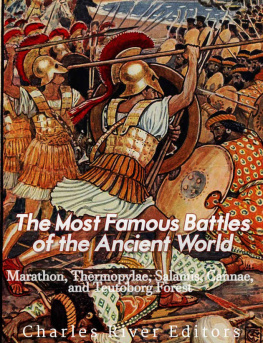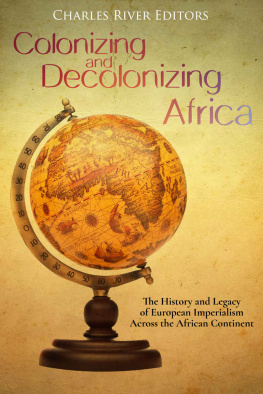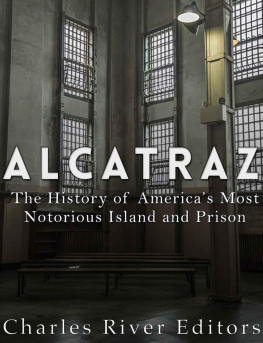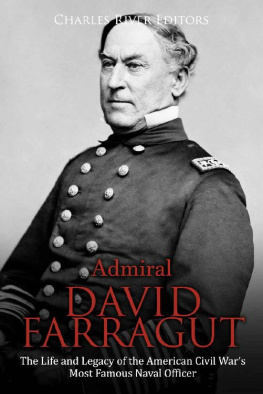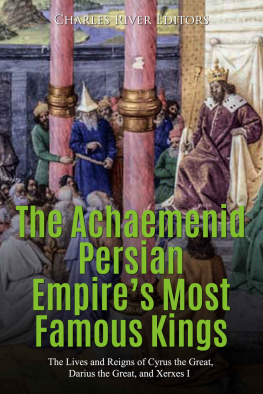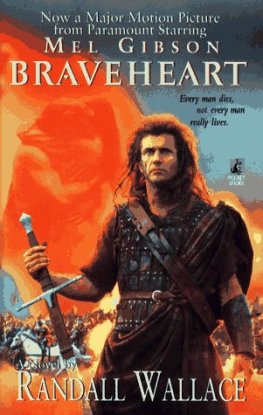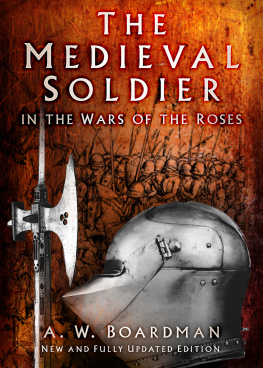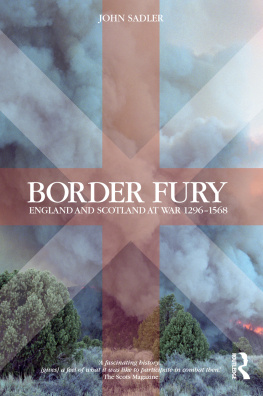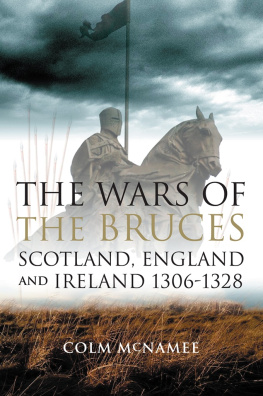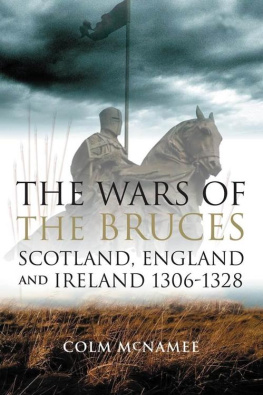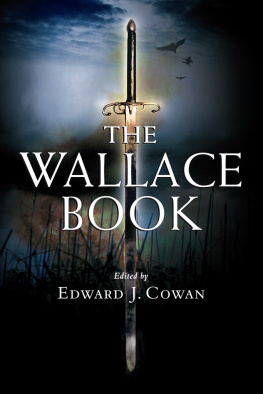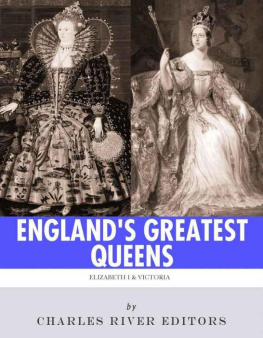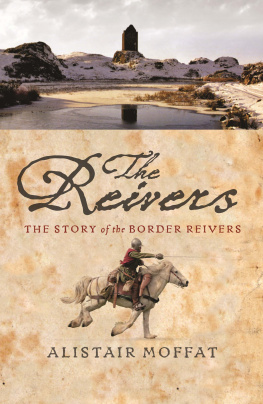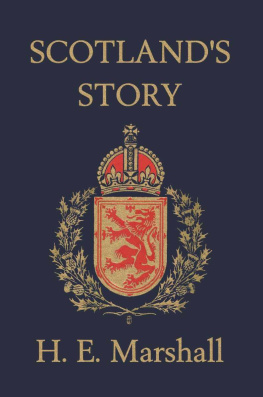Charles River Editors provides superior editing and original writing services in the digital publishing industry, with the expertise to create digital content for publishers across a vast range of subject matter. In addition to providing original digital content for third party publishers, we also republish civilizations greatest literary works, bringing them to new generations of readers via ebooks.
Sign up here to receive updates about free books as we publish them , and visit Our Kindle Author Page to browse todays free promotions and our most recently published Kindle titles.
Introduction

Early 20 th century depiction of Wallace in H E Marshall's Scotland's Story .
William Wallace (?-1305)
A false usurper sinks in every foe
And liberty returns with every blow. Blind Harry
From their very beginnings, England and Scotland fought each other. Emerging as unified nations from the early medieval period, their shared border and inter-related aristocracy created endless causes of conflict, from local raiders known as border reivers to full blown wars between their monarchies. Every century from the 11th to the 16th was colored by such violence, and there were periods when not a decade went by without some act of violence marring the peace.
Out of all of this, the most bitterly remembered conflict is Edward I's invasion during the late 13th century. After Edwards death, the English were eventually beaten back at the famous Battle of Bannockburn in 1314, and thus the early 14 th century was a period featuring some of Scotland's greatest national heroes, including William Wallace and Robert the Bruce. It still resonates in the Scottish national memory, all the more so following its memorable but wildly inaccurate depiction in the 1995 film Braveheart , which had Scottish audiences cheering in cinemas.
William Wallace is one of the most famous freedom fighters in history, and over 700 years after his death he is still remembered as Scotlands beloved hero. But while the movie Braveheart helped make him a household name, and he is commemorated across Scotland as a natural leader and a loyal son of his homeland, he is also the most mysterious of the leaders of the Scottish resistance to Edward I. This is because, paradoxically, the very famous soldier is also one of the least well known. In fact, the mystery surrounding Wallace is figuring out precisely, or even vaguely, who he was. Where did this champion of Scottish independence come from? Who was his family? What did he do before emerging from obscurity with the brutal murder of William Heselrig, the English sheriff of Lanark, in May 1297? So little evidence on Wallaces life exists that answering even the most basic questions about him can be a challenge.
That said, as one scholar perceptively notes, the facts are not the reason why he is remembered as a meaningful historical actor. For the admirers Wallace has accumulated over the centuries, the idealized version of what he stood for - weak over strong, justice over injustice, the will of the people over the might of the powerful - is infinitely more important than the historical man himself. Similarly, his English detractors have also focused on image over substance through the years, depicting Wallace as a heartless brute, a cruel traitor, and a blood-hungry outlaw. Whether hes depicted as an icon of Scottish resistance or a symbol of disloyalty and treachery, William Wallace is as much an idea as he was an actual figure of the Scottish Wars of Independence.
Piecing together the story of William Wallaces life is an exercise in asking more questions than can be answered, and often in looking at just as much conjecture as proof. This book attempts to separate fact from fiction while looking at the life and fighting of the man who inspired Braveheart . Along with pictures and a bibliography, you will learn about William Wallace like you never have before.
Robert the Bruce (1274-1329)

A statue of Robert the Bruce at Bannockburn
Though its often forgotten today, Robert the Bruce was a bit shiftier, if only out of necessity. Robert the Bruce has become a figure of Scottish national legend, renowned as the man who threw off the shackles of English oppression, but prior to 1306, this Anglo-Scottish nobleman did little to cover himself in glory or to earn a reputation as a hero of the national cause. A member of one of Scotland's leading noble families, Bruce inherited his grandfather's claim to the right to be King of the Scots. That older Bruce had been one of the two leading competitors in the Great Cause, and the family still held ambitions toward the throne. They also held resentments dating back to that disputed inheritance against the Balliol clan and their supporters the Comyns.
Of course, this was all forgiven and forgotten after Bannockburn and Bruces rise to the Scottish throne, which he held for over two decades. This book analyzes the life of Robert the Bruce and the events that led to his rise as the most famous Scottish king of the Middle Ages. Along with pictures of important people, places, and events, you will learn about Robert the Bruce and the Scottish Wars of Independence like never before.
Chapter 1: Blind Harry and Wallaces Early Years
It is impossible to discuss William Wallace without making reference to Blind Harry, or Henry the Minstrel (c.1440-c.1492), the 15 th century bard credited with writing the earliest surviving account of Wallaces life: the epic poem The History of the Life and Heroic Actions of the Renowned Sir William Wallace, General and Governor of Scotland. Written somewhere around 1474-1479, roughly 170 years after the warriors death, the epic contains more than 11,000 lines on Wallaces exploits and is peppered with a great deal of embellishment and fiction. But despite the fact it is heavily scrutinized over its accuracy (or lack thereof), Blind Harrys epic has framed the way the Scottish warrior is remembered and has shaped what many think of as the historical Wallace.
th century financial accounts show that Blind Harry earned a living reciting poetry and song and had performed in the court of King James IV, as well as other noble venues. Thus, not surprisingly, the Wallace he depicts is a blend of folklore and literary conventions deliberately intended to portray the warrior as a gracious god of Scotland, rather than some ordinary Scotsman from a middling-rank noble family. It is also important to note that Harry performed mainly for anti-English audiences who were hungry for tales of rebellion and misdeeds against their southern neighbor. Moreover, many nobles found in Harrys work the opportunity to attack the reigning Scottish monarch, King James III, who was perceived as supporting pro-English policies far too much. Having Harry recite his heavily anti-English biography of Wallace was likely a way for many Scottish nobles of the 1470s to promote indirect criticism of James III.

